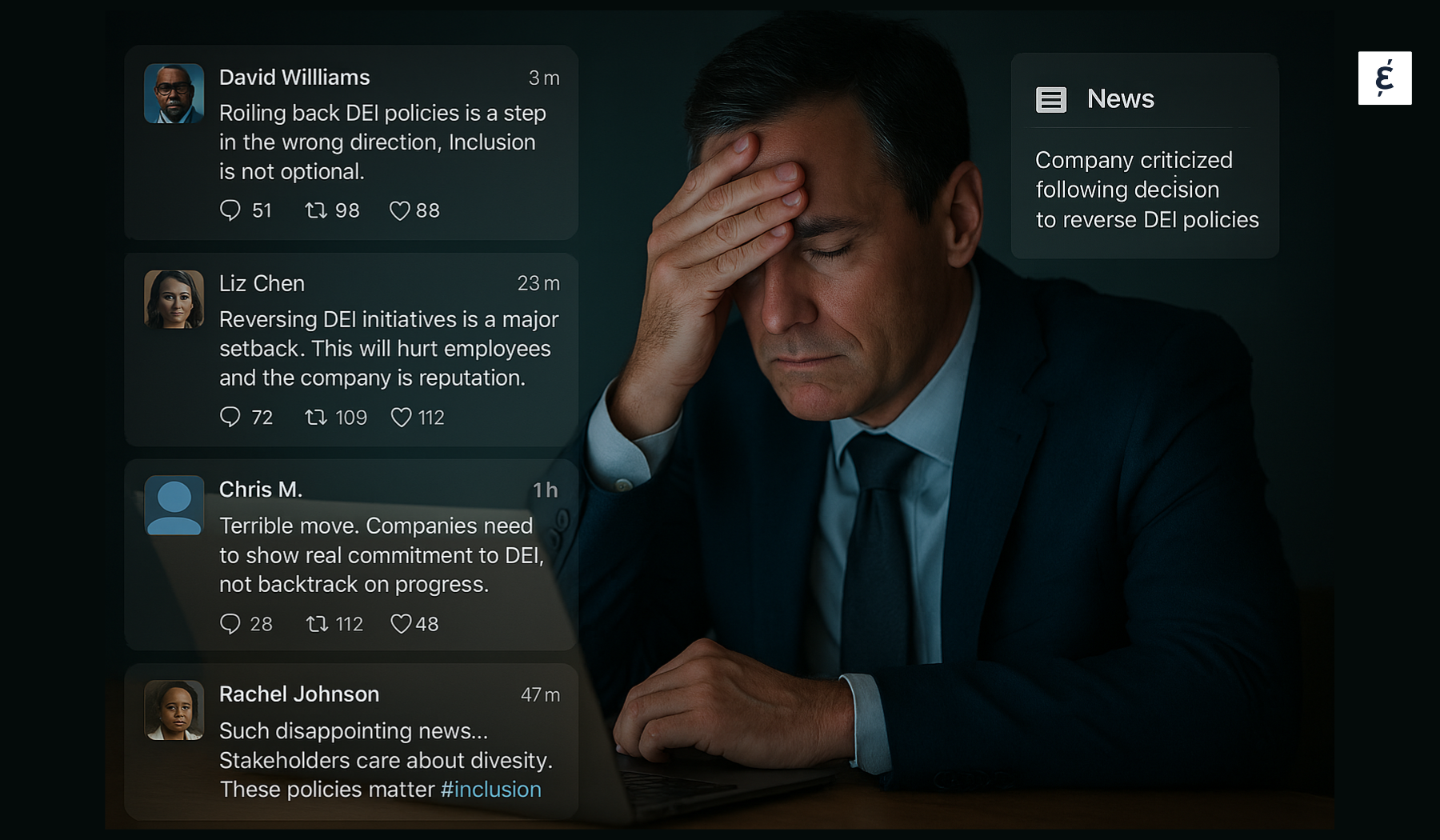

I’ll never forget that lecture in my early days of business school in New York, in which the professor proudly explained to the packed auditorium how his family managed to avoid paying taxes over the year through savvy management of the household finances.
The idea of being smart about your taxes seemed harmless and sensible, but encouraging young and impressionable soon-to-be businesspeople at an Ivy League institution to avoid paying taxes altogether?
I must admit I briefly questioned my choice of education at that moment.
Since then I spent years helping companies articulate and strengthen their identity/ brand/ image/ reputation (pick your favorite term). Throughout these years, words like “integrity” and “ethics” came up again and again as part of companies’ definitions of their core identities, values, or what they aspire to stand for.
But what I also witnessed were more and more examples of companies talking about business integrity while demonstrating the opposite – from the Enron accounting fraud (a company that actually had the word “integrity” as one of its four core values) to the much-talked-about Dieselgate.
I started wondering if “business” and “integrity” were in fact mutually exclusive terms.
“The world runs on individuals pursuing their self interests”
– Milton Friedman
You may say that some of the greatest thinkers in economics would agree with this conclusion: from the days of Adam Smith, many economists have been arguing for centuries that the purpose of business is to maximize profit.
According to this view, ambition, self-interest, and even greed are the forces that power capitalism – and thankfully so. Milton Friedman, a clear advocate of the Profit Motive theory, which later evolved into what we know today as the Shareholder Value model, went as far as saying that “The Social Responsibility of Business is to Increase its Profits”.
And I won’t even talk about Ayn Rand and her thoughts about the virtue of greed. If the sole purpose of a business is to make money for its shareholders, does it not suggest that business integrity should take a back seat?
While the notion of maximizing shareholder value (also known as Anglo-Saxon capitalism) came to dominate the world of business as we know it today, it came under renewed criticism in the early 2000s following the gradual collapse of public trust in corporations in light of the circumstances surrounding the disappearance of once great hallmarks of capitalism such as Enron, WorldCom, and Lehman Brothers.
The concept of Shared Value rather than Shareholder Value started to take hold, and some even referred to the idea of shareholder value maximization as “the world’s dumbest idea”. Business Schools, belatedly, are coming to realize that part of their role and responsibility in educating future business executives is to also instill a strong ethical code among students –and they’re adapting their curricula accordingly.
But in my mind, the question of integrity in business is not connected to whether the conservatives or progressives ultimately win the argument about the purpose of business. Whether it’s to make money for shareholders, as the former argue, or to address wider social needs as the latter argue, personal integrity can and should serve as a core tenet in the behavior of all companies and company executives.
So far so good – no economist or management theorist would object to that. Why then is it so that scandal after scandal seems to suggest that companies talk the talk when it comes to integrity but find it hard to walk the walk and practice what they preach?
If you ask me the issue is not whether CEOs define “integrity” as a part of their company’s core values or even its core purpose – it’s what they do to engender a culture of integrity throughout the organization and how they lead by example.
In his book Conscious Capitalism, John Mackey, co-founder of Whole Foods Market, says that business is “fundamentally good and ethical”. I fundamentally agree.
But I also think as he does, that good intentions are not enough – authentic business integrity requires work on several fronts:
1. Purpose
As I mentioned in a previous post, companies that stand for something beyond making money have a higher chance of gaining the goodwill of their stakeholders. They also have a higher chance of successfully instilling ethical behavior among their employees.
2. Leadership
Undoubtedly, the biggest ambassador of a company is its leader – and the same goes for the company’s integrity. When CEOs demonstrate integrity in their behavior and demand the same of their senior management, this behavior and expectation trickle down the organization.
3. Stakeholder perspective
When businesses consider the interests and needs of all their stakeholders rather than solely those of shareholders, they make decisions that are better informed and which better maximize the total value they generate – for all.
4. Culture:
Culture is powerful, so much so that it can “eat strategy for breakfast”. Therefore, if the culture is not one that encourages and rewards integrity – nothing will.
5. Systems and processes
If genuine integrity is to be embedded in employee behavior, it needs management tools and work processes that encourage and “enforce” it: KPIs, feedback loops, IT systems, audits, and reviews that identify and remove occurrences that don’t live up to high standards of integrity.
The first four of these are referred to as the four principles of conscious capitalism by Mackey. The 5th one is my addition, following my own experience in embedding core values across organizations over the years.
So, no, I don’t believe the term business integrity is an oxymoron. And I don’t feel that my choice of education was wrong (though I sometimes like to joke that all we learn in Business Schools is 3 C’s, 4 P’s, and 5 Forces).
But I do believe companies – large and small – need to work harder to demonstrate business integrity and, by doing so, regain trust and live up to the real potential of the business.






© 2024 Group Caliber | All Rights Reserved | VAT: DK39314320